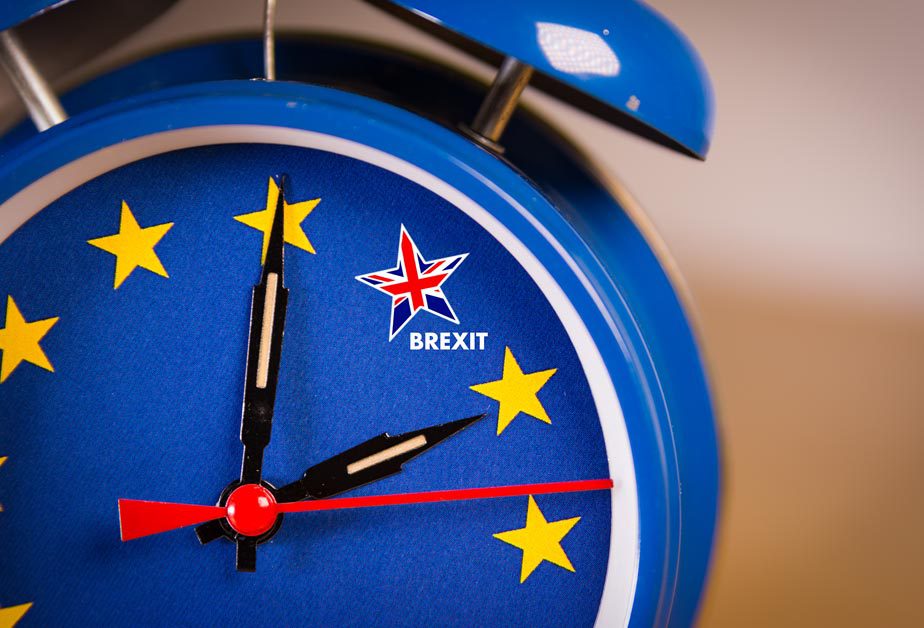On January 31, 2020, the UK officially left the European Union (EU) and entered a transition period to allow time for the two parties to negotiate and establish new trade deals, regulatory processes, and other fundamental systems for their future relationship.
Brexit Transition Period
The official Brexit transition period runs from February 1 until December 31, 2020. During this time, businesses in the UK and EU continue to operate as they did prior to the UK’s departure. If no agreement between the two parties has been realized in that time, a “No-Deal” Brexit will occur, establishing the UK as a “third country” outside the European Economic Area (EEA) with no automatic benefits to trade, businesses, or free movement.
Brexit & Regulatory Divergence
The UK’s response to product compliance regulations such as the EU Registration, Evaluation, Authorisation and Restriction of Chemicals (REACH) Regulation and the EU Restriction of Hazardous Substances (RoHS) Directive has considerable implications for businesses in the UK and EU, as any divergence in requirements could have a significant impact on company operations.
The UK government has been signaling regulatory divergence away from the EU for some time, though there has been much opposition from several industry groups. The first confirmed break occurred in April, when UK Transport Secretary, Grant Shapps, announced the country would leave the European Aviation Safety Agency (EASA), potentially doubling the certification requirements for aerospace and defense companies.
In May, Rebecca Pow, the Parliamentary Under-Secretary of State at the UK’s Department for Environment, Food and Rural Affairs (Defra), reiterated the government’s position that it would cease regulatory alignment when the Brexit transition period ends on December 31, 2020.
“Based on our commitment to having control of our own laws, the UK will establish its own independent chemicals regulatory framework, UK REACH, from 1 January 2021,” she wrote in a letter to Philip Dunn, Chair of the Environmental Audit Committee.
Do you have more questions about Brexit and how it impacts your company? Visit our Brexit Regulatory FAQ page for more information.
UK REACH
A move to a UK-operated REACH system is not a simple pivot for companies, with lasting impacts for UK-based companies, EU businesses, and other companies that export to Europe. The EU REACH Regulation places requirements for companies to register substances with notified bodies and communicate the presence of substances of very high concern (SVHCs) present above threshold in products manufactured, imported, or distributed in the EU. A company would need to duplicate each step to meet its requirements under UK REACH, as EU notified bodies would be unable to communicate with UK bodies under a no-deal scenario.
This essentially doubles the regulatory compliance requirements for a company selling into both the UK and EU.
It seems likely the UK system will initially mirror the EU as far as basic structure and substances in scope. Over time, however, the two regulations may drift, further complicating compliance efforts and increasing costs.
UK RoHS & UKCA Markings
The Conformité Européenne (CE) marking is the most recognizable symbol of compliance in Europe and is used to declare a product’s conformance with several regulations, including the EU RoHS Directive. The CE marking will not be valid for companies seeking to place products on the UK market in the event of a no-deal Brexit. In 2019, the UK government issued guidance for companies preparing to move to a UK Conformity Assessed (UKCA) marking, replacing the CE marking. That guidance was part of an effort to prepare businesses for a no-deal Brexit in October 2019 and has subsequently been withdrawn. It is possible the UKCA marking returns as the preferred method of conformance marking if no alignment is reached during the current Brexit transition period.
Impacts on Businesses
The full impact of regulatory divergence will be felt by companies in any of the following three scenarios:
- Companies in the UK selling into both the UK and EU markets.
- Companies in the EU selling into both the EU and UK markets.
- International companies selling into both the EU and UK markets.
In any of these scenarios, companies may be forced to duplicate compliance activities to achieve market access. Products will require separate processes to ensure ongoing compliance as the regulations evolve independently of one another and new regulations come into force.
Complete regulatory mirroring is unlikely. While the UK has plans to replace legislation such as the REACH Regulation, RoHS Directive, and the EU Medical Device Regulation (MDR), it has not moved toward a UK-equivalent for the EU Waste Framework Directive’s Substances of Concern In articles, as such and complex objects (Products) (SCIP) database.
How Assent Can Help
Assent is the leading compliance management software provider, enabling companies to efficiently acquire and validate supply chain data and demonstrate compliance with global regulations. Supported by a team of globally-recognized experts, Assent can help you be proactive in an uncertain regulatory landscape. To learn more, contact us today.










